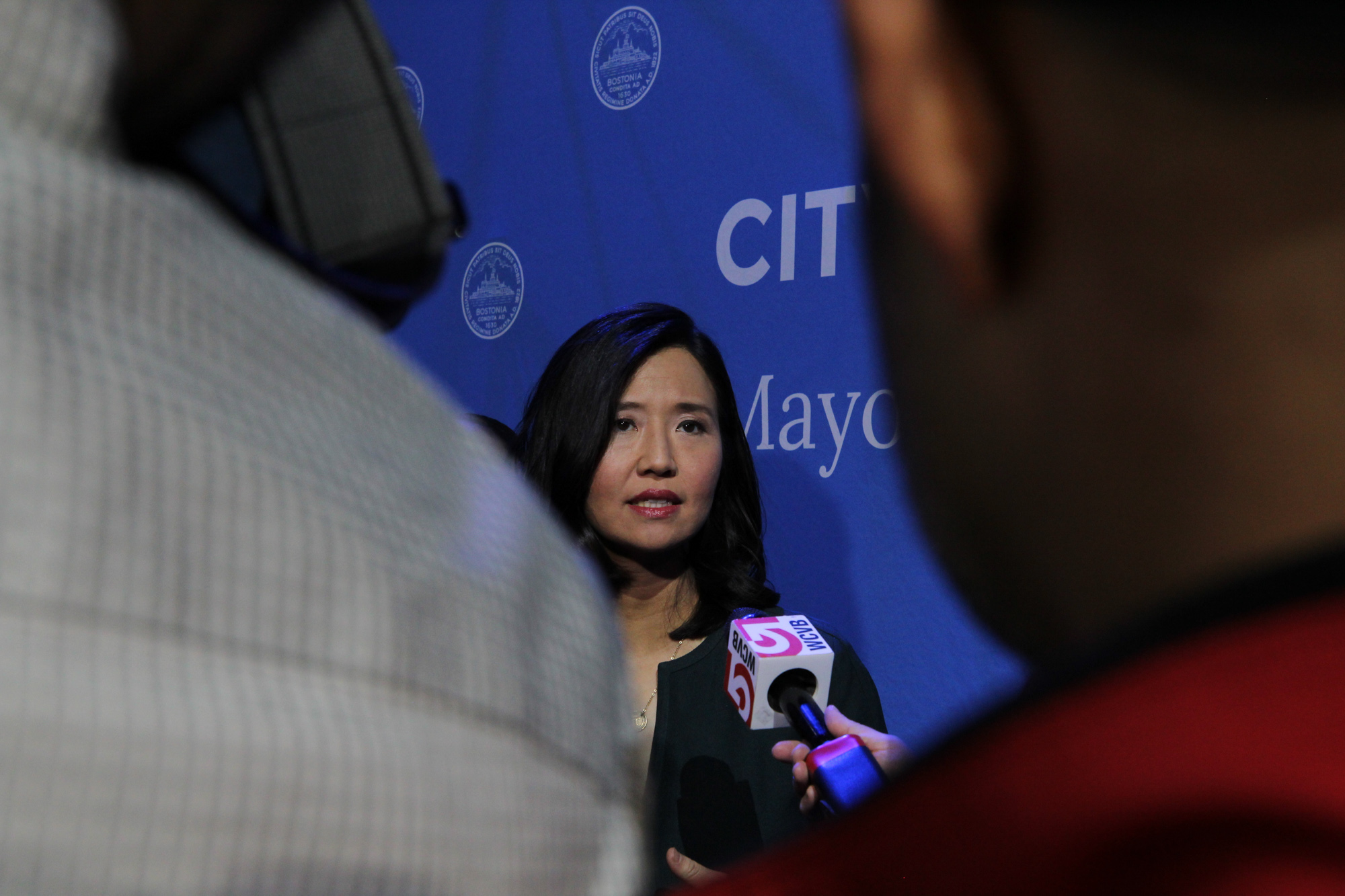Mayor Michelle Wu filed her Fiscal Year 2026 annual operating budget and five-year 2026-2030 Capital Plan Wednesday, revealing a $4.8 billion operating budget for 2026 and a $4.5 billion capital plan.
The plan represents a 4.4% increase over 2025’s budget, according to the FY26 operating budget.

Wu said the budget aims to balance the ongoing political and financial uncertainty at the federal level, with the need to maintain essential city services running, according to GBH.
Housing security
The Housing and Planning Cabinets plan to continue targeting affordability with a focus on stability. However, unlike last year, the budget does not include appropriations to the Housing Accelerator Fund enacted in January 2025, according to the City of Boston.
“This budget affirms Boston as a home for everyone,” Wu said, according to GBH. “In very difficult times, [it] continues to prioritize critical city services.”
The Housing Cabinet will launch a Co-Purchasing Pilot program, which was announced in Wu’s State of the City Address. This program allows residents to pool their resources together to buy multi-family homes with City-backed 0% interest deferred loans.
The Capital Plan for 2026-2030 will invest $124 million in partnership with the Boston Housing Authority to preserve and redevelop the Bunker Hill, Mildred Hailey and Mary Ellen McCormack sites.
Education
38.7% of the budget will be allocated towards the City’s public education. The operating budget will cover day-to-day expenses for personnel such as teachers, according to the City.
With the budget for 2026, along with the five-year plan, Wu plans to implement capital projects, including a new school building and renovations of a library.
The FY26-30 Capital Plan invests approximately $1.2 billion in Boston Public School facilities and Charter School Tuition, which is about 26% of the total allotment for education. In addition to this, 32% of all City bonds are invested in BPS.
Public safety
The budget seeks to maintain Boston’s status as the “safest major city” in the country.
Targeted reductions to both personnel and non-personnel spending aim to enable the City to meet its obligations among shifting economic and federal dynamics, according to the City.
Much of the growth in the budget is going towards city expenses for transportation and public safety. The Capital Plan will invest more than $135 million in sidewalk reconstruction, roadway resurfacing and curb ramps.
“Municipal budgeting is all about providing reliable and essential services for residents who depend on them,” said Adam Chapdelaine, executive director and chief executive officer of the Massachusetts Municipal Association. “In a shifting economic landscape and increased federal uncertainty, the City of Boston is taking a thoughtful and responsible approach.”




















































































































